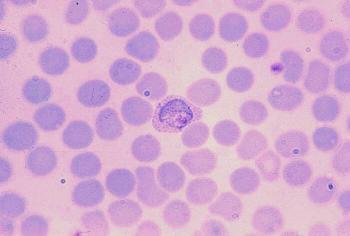
INDIA-U.S.
JOIN FORCES TO COMBAT WORLD’S MOST WIDESPREAD FORM OF MALARIA
 Malaria
Vaccine Initiative, India’s International Centre for Genetic Engineering and
Biotechnology, and Bharat Biotech to Jointly Develop Malaria Vaccine
Malaria
Vaccine Initiative, India’s International Centre for Genetic Engineering and
Biotechnology, and Bharat Biotech to Jointly Develop Malaria Vaccine
(This article was originally posted on the PATH website)
NEW DELlHI, INDIA, 11 July
2001— A candidate vaccine developed by Indian researchers that
promises to protect against the world’s most widespread form of malaria has
now received a major boost through a three-way partnership. The Malaria Vaccine
Initiative at PATH (Program for Appropriate Technology in Health, a US-based
nonprofit organization), the International Centre for Genetic Engineering and
Biotechnology (ICGEB) in New Delhi, and the biotechnology firm, Bharat Biotech
International Limited in Hyderabad, India, today announced an agreement to
jointly develop a vaccine with the potential to prevent malaria caused by the
parasite Plasmodium vivax, transmitted
through mosquito bites. Nearly 65 percent of all malaria cases in India are
caused by P. vivax. The Indian
government spends almost half of its health budget combating malaria.
“With MVI’s support, our goal of an effective vaccine
for India and the world suddenly seems possible,” said Dr. Virander Chauhan,
Director of ICGEB and Head of its Malaria Research Group in New Delhi. “Prior
to MVI’s backing and our partnership with Bharat, we had no clear way to move
this vaccine candidate from the lab to manufacturing and clinical testing.”
“This project brings together two great resources
within India: the world-class scientists at ICGEB and the know-how of the
up-and-coming Indian biotechnology sector,” said Regina Rabinovich, MD,
Director of the Malaria Vaccine Initiative at PATH. “With this partnership and
the continued collaboration of the Indian Government, we hope to make a malaria
vaccine not only for India, but for the whole world.”
“This vaccine would help people in developing and
under-developed countries, where malaria is rampant and threatens their very
existence,” said Dr. Krishna Ella, Chairman and Managing Director of Bharat
Biotech. “This is an important step toward Bharat Biotech’s goal of
providing cost effective solutions to diseases endemic to such regions.”
Malaria has been a scourge of India for centuries, and
references to it can be found in
Indian Vedic writing from 1600 BC. Today, with one-sixth of the world
population, India continues to suffer a tremendous disease burden from malaria
caused by two different parasites: Plasmodium falciparum and P.
vivax. P. falciparum is most prevalent in Africa and is the major cause of
deaths from malaria.
Although the less deadly of the two parasites, P.
vivax is more widespread and causes severe illness. Beyond India, it is
found across large swaths of Asia, Latin America, and Africa. Furthermore, it
has been on the rise due to the parasite’s increased resistance to
anti-malarial drugs. Currently, no vaccines are licensed to protect against any
form of malaria, which infects 300 to 500 million people worldwide.
The candidate vaccine developed by ICGEB targets the
parasite’s “Duffy binding protein.” This protein enables P. vivax to bind to receptors on red blood cells, in essence opening
doors to invade the cells. Because the vaccine is designed to thwart invasion of
red blood cells, it may be able to prevent disease caused by P.
vivax. ICGEB initially developed the P.
vivax candidate vaccine with support from the World Health Organization’s
Tropical Disease Research Division. ICGEB has also received funding for malaria
vaccine development from the Indian Government’s Department of Biotechnology
and the Indo-U.S. Vaccine Action Program, an alliance between the Department of
Biotechnology and the U.S. National Institutes of Health.
“The agreement between ICGEB, Bharat, and MVI brings
international recognition to the malaria vaccine development efforts at ICGEB
and will provide a major thrust to our work,” said Dr. Chetan Chitnis,
Scientist, Malaria Research Group at ICGEB/New Delhi, and Principal Investigator
for the MVI-ICGEB-Bharat project.
Under the new agreement, to which MVI brings more than
US$1 million, ICGEB will fine-tune the vaccine and transfer its technology to
Bharat Biotech. Bharat will manufacture the vaccine in compliance with the
highest biological standards for human clinical trials. Located in Hyderabad,
the center of India’s biotechnology industry, Bharat will use its
state-of-the-art process development and manufacturing facilities for the
project. Human clinical trials should begin before 2004.
![]()